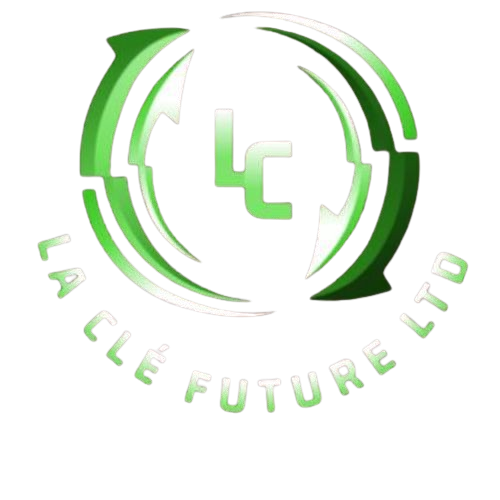When we launched La Clé Future Ltd, we didn’t just want to build a business — we wanted to build a movement. A movement toward a cleaner, more sustainable Africa. One where waste isn’t just dumped or burned, but reimagined as a resource with power, purpose, and potential.
As a Nigerian startup operating in the recycling, pyrolysis, and nylon production space, our journey has been anything but easy. From navigating limited infrastructure to educating clients on circular economy practices, we’ve had to learn fast, adapt faster, and stay grounded in our mission.
💡 Why We Started
The idea came from a simple but powerful observation: Nigeria is producing more waste than ever before — plastic, rubber, and industrial scraps — and most of it ends up in landfills or scattered in our environment. But what if we could turn that waste into something valuable?
That question led us to pyrolysis, a clean energy technology that can convert waste into bio-oil, carbon black, and even mesh wire. It led us to recycling innovation and quality nylon manufacturing using repurposed materials. And it led us to believe that Africa doesn’t have a waste problem — it has an opportunity problem.
🛠️ The Startup Grind
Like most startups, we started small — limited machines, limited funding, big dreams. We faced questions like:
-
How do we build trust with industrial clients?
-
How do we stay compliant with environmental regulations?
-
How do we educate communities about recycling when many have never even heard of pyrolysis?
The answers weren’t easy. But we discovered that persistence, partnerships, and purpose-driven branding can go a long way. We started working with local businesses, hosting awareness drives, and hiring people from our communities. Every small win — from fulfilling our first nylon order to setting up our first drop-off site — reminded us that progress is possible.
🚀 Our Impact So Far
-
We’ve processed thousands of kilograms of plastic and rubber waste.
-
We’ve created eco-friendly packaging solutions for businesses.
-
Our work has generated green jobs and increased awareness around sustainability.
-
And we’ve kept moving forward, even when the odds said otherwise.
🔮 What’s Next?
We’re expanding. We’re upgrading. And we’re looking for partners, clients, and collaborators who believe in this vision as much as we do.
Because at La Clé Future Ltd, we’re not just creating products — we’re creating a future where Africa leads the world in sustainable innovation.
How Recycling Benefits Local Businesses in Nigeria
Recycling is more than just an environmental practice—it’s a powerful catalyst for economic growth, especially for local businesses in Nigeria. As the country continues to urbanize and industrialize, waste management challenges have grown, but recycling offers smart solutions that benefit businesses in multiple ways.
1. Cost Savings and Resource Efficiency
Recycling helps local businesses reduce raw material costs by reusing materials like plastic, paper, glass, and metals. Instead of purchasing entirely new materials, businesses can incorporate recycled inputs, which are often cheaper and readily available. This improves profit margins and operational efficiency.
2. Job Creation and Economic Growth
The recycling industry stimulates job opportunities in collection, sorting, processing, and resale of recycled materials. Small and medium enterprises (SMEs) involved in recycling contribute to community employment and foster entrepreneurship, helping to reduce unemployment rates in Nigeria.
3. Enhanced Brand Image and Customer Loyalty
Consumers today are more environmentally conscious. Businesses that adopt sustainable practices, including recycling, can differentiate themselves and attract loyal customers. A green business reputation builds trust and opens doors to new markets, both locally and internationally.
4. Reduced Waste Management Costs
Proper recycling reduces the volume of waste sent to landfills or informal dumpsites, lowering disposal fees for businesses. It also minimizes environmental fines and compliance costs by adhering to government regulations on waste management.
5. Support for Circular Economy Development
Recycling fosters a circular economy where materials continuously flow through production and consumption cycles. Local businesses that engage in recycling contribute to a sustainable ecosystem that conserves resources, reduces pollution, and drives long-term economic resilience.
Conclusion
For Nigerian local businesses, recycling is more than an eco-friendly choice—it’s a smart business strategy that saves money, creates jobs, strengthens community ties, and builds sustainable growth. By embracing recycling, businesses can contribute positively to Nigeria’s economy and environment, creating a cleaner, greener future for all.

